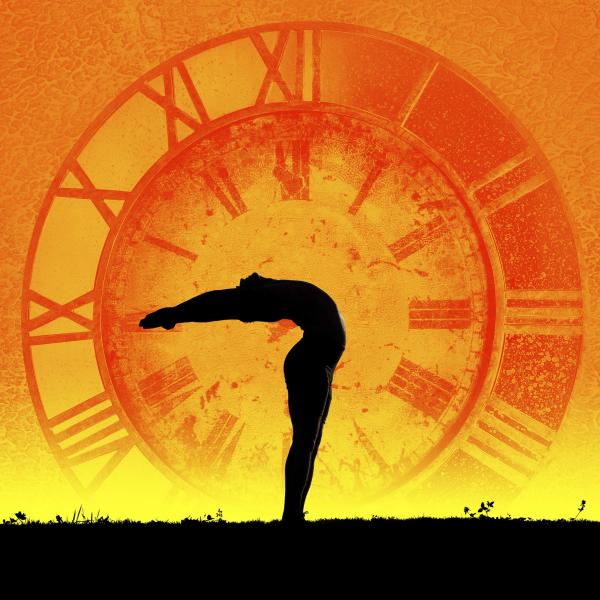Morning or Night: When Is the Best Time to Work Out?

Whether you’re a seasoned exerciser or just starting out, the question about the best time to work out has probably crossed your mind. If you talk to anyone about this question you will most likely hear varying answers that only confuse the situation more. To make matters worse, if you do research you will find scientific theories backing up morning, afternoon and evening sweat sessions. So which one is it or does it really even matter?
After combing through tons of different sites with loads of advice, here is a quick summary of the benefits of morning and afternoon/evening workouts and what really matters in the end:
Benefits of Morning
- Consistency: According to WebMD, exercising in the morning can lead to more consistent workouts because you complete your work out before anything else has a chance to get in the way (just make sure to warm up a little longer in the morning because your body temperature is lower).
Crowd Avoidance: If you’ve ever stepped inside a gym around 6pm, you know what crowded means. Without the large crowds, working out in the morning allows you to get in and out.
Convenience: If you sleep in your workout attire, you can just get up and go rather than worrying about gym and work clothing.
Healthier Days: According to Shape, when you start your day with exercise, you are setting yourself up for a full day of health. Many people follow morning workouts with a healthy shake or snack and increase their water intake the remainder of the morning. This sets you up for a full day of healthy eating.
More Sleep: While this may sound funny considering you’d be waking up earlier to exercise, it really can lead to more sleep. If you know you need to wake up early, you most likely be more conscious about the fact that you need to go bed earlier. (Read our blog about Sleep vs. Exercise to see why sleep is so important in your workout journey).
Benefits of Afternoon/Evening
- Alertness: Do you feel groggy in the morning? You may be better off waiting until lunch time or after work to log your exercise session so you can stay alert during you work out and help avoid injury.
Relieve Stress: Working out after work can be a great way to relieve the stress of the day. It is necessary to leave stress in a healthy manner because according to Shape, “Studies have linked weight gain to increased stress levels, thanks to the release of cortisol. Further research has shown that this hormone can increase an individual's desire to eat bad-for-you foods.”
Accountability: For some people, working out in a group or with a partner not only makes you want to work out more but holds you accountable. It’s most likely easier to find someone to workout with you during lunch or after work than it is early in the morning.
Variety: Class wise, you’ll notice that there are more options in the evening than in the morning. This also gives you a chance to switch up your routine by trying new workouts.
Safety: Running or walking home from the gym during the evening when many people are out can be much safer than being one of the few out and about in the morning.
What Matters?
As you can see, both the morning and night have different benefits. So if both are good options, what really matters?
In the end, it’s all about consistency. The impact of exercising regularly provides a far greater benefit than the time of day in which you do it. Greatist states that research suggests that the body can adapt to regular gym times so if you work out every day at the same time, your body will eventually perform better at that time than any other.
In order to figure out which time of day is best for you so you can keep your workouts consistent, the American Heart Association has a great suggestion: work out for a couple of weeks in the morning, then afternoon and then evening and see which one makes you feel good and works best with your schedule. Once you determine which one is best for you, you’ve answered the question about the best time to exercise.
